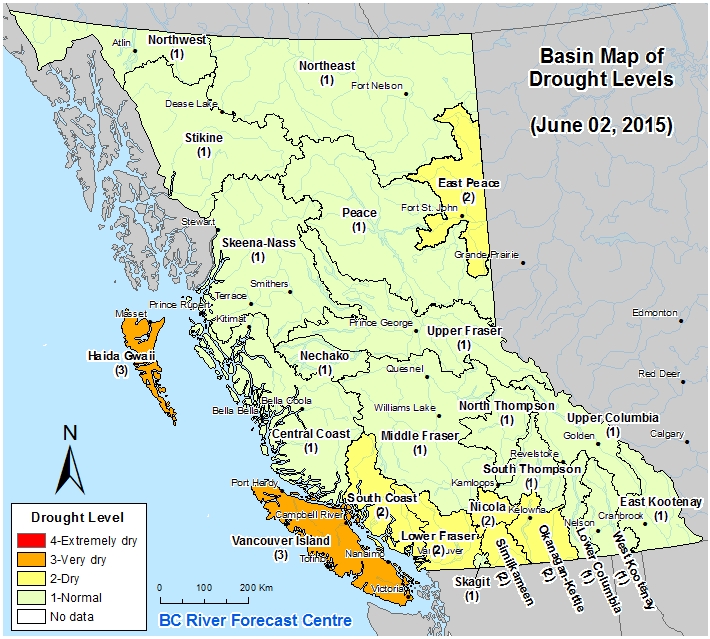WATCH: Vancouver Island is in the middle of a “level three” drought, the second-highest on the scale. Kylie Stanton reports.

Joe Saysell has lived next to the Cowichan River for all of his 66 years, and he’s never seen it this low in June.
“Not even close,” he says.
“This is still June. We’ve got July, August and September to go through.”
The unrelenting warm weather is cause for concern all over British Columbia. But in Vancouver Island’s Cowichan Valley, which has been on drought level 3 for weeks, the issues stemming from the lack of rain are particularly acute.
READ MORE: Warmer temperatures in Metro Vancouver could last well into 2016
In addition to maintaining a steady stream for the fish, the Cowichan River provides water for a paper mill in Crofton. But that delicate balance could soon become unsustainable. The river, which usually has a flow of seven cubic metres per second, is at at 5.5 at the moment. Earlier this week, the river forecast centre said the flow was at 25 per cent of the median level for this time of year, and issued a low streamflow advisory.
Saysell and local politicians are advocating for raising the weir that stores water in Cowichan Lake.

Get breaking National news
“We have to continue to work on raising the weir. Our only real tool at this point in time is having more water stored to control that release,” says Jon Lefebure, Mayor of North Cowichan.
He believes that a raised weir would ensure less water overflows from the lake during the winter, allowing for more of it to be dispensed to the river in the summer.

To date, the provincial government hasn’t committed to funding any renovations to raise it. Which means people like Saysell will continue to watch the river – and worry.
“We’re going to run out of water,” he says.
“Maybe it’s going to take a catastrophe for people to wake up and revolt and say ‘enough is enough.'”




Comments